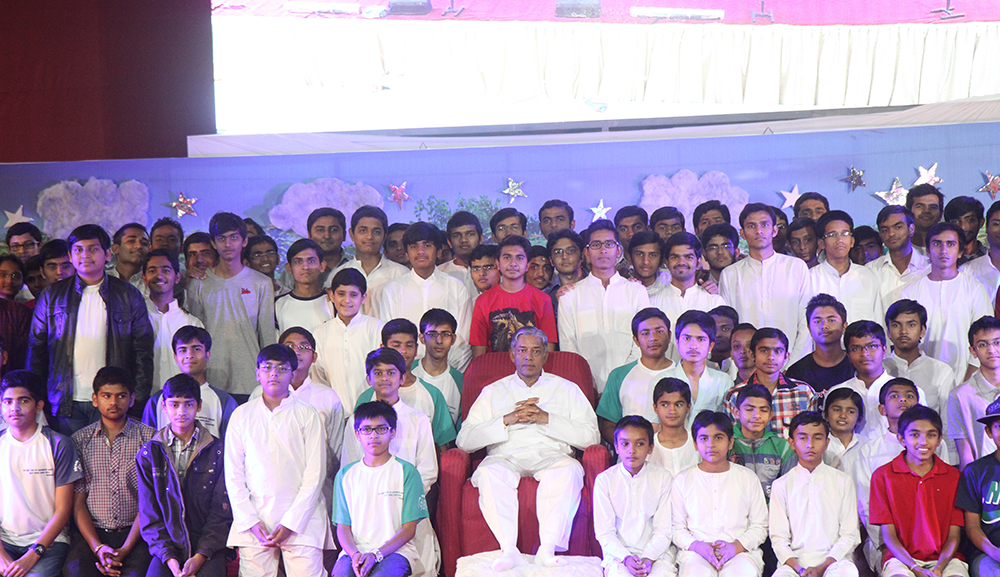
Questioner: One can understand that the justification and the protection of faults, by way of speech, is ‘upraanu’ (taking its side or being partial to the mistake). Can it also be done by way of our thoughts?
Pujyashri: It is not so. It is still subtle in thought. When is it ‘upraanu’? When someone points out to you that you have spoiled something, and if you feel that it is true and that it is your mistake. Simultaneously, you also feel that her method is correct whereas yours was incorrect and indeed what she is doing is right and you feel that you should support her. Then, if at the same time your friend comes to you and says, “Why aren’t you active this time? Why have you passed on your work to someone else” and you reply, “No, no. She bullied me and snatched everything from me, otherwise I would have done it!” Then it is because your ego is enraged, you rushed to protect your ‘position’.
She knows that it is wrong to deal with situations with anger. Yet, she gets angry with her son and scolds him to study. She unnecessarily quarrels with him. Then her husband interferes saying “Why are you having this unfruitful discussion with him? Let him get bad results, but you have to stop quarrelling with him!” “You don’t bother!” She shouts back at her husband, “You are not at home all day, so I have to handle him. If I don’t keep an eye on him, how will I know whether or not he is studying?”
Here, when she gets angry with her son, he suffers and she is fully aware of this and she knows that what she does is wrong. But the moment anyone points out her mistake, she immediately protects it.
Questioner: Does that mean that only when someone is present she takes ‘upraanu’ or can she do that in her mind?
Pujyashri: That may be so, but as a precaution she prepares herself mentally that if he says something to me, then, I will say this, and actually when the situation arises, she justifies her mistake by saying exactly what she had planned, and therefore, taking ‘upraanu’. So then what?
Dada says it is wrong to smoke a cigarette. A person is penitent about his smoking, because he knows that it is wrong, but when someone tells him, “I saw you smoking a cigarette.” He then protects his habit by justifying it by saying, “I don’t drink tea, and I don’t chew tobacco. I don’t have any addictions. I smoke only once after lunch and once after dinner, no more.” Thus, he knows his mistake, yet he protects it.
Questioner: Then what should he say? What kind of readiness must he have?
Pujyashree: If someone points out my mistake, I should be prepared to accept it by saying, “It is true. This is my weakness. I repent for this mistake.” I should admit that I am doing wrong and must repent from within for this mistake. Moreover, I should be thankful to the other person for pointing this out to me because it is my mistake.
Where on the contrary, we push the person away and we stop him from speaking further saying, “Don’t say another word to me! You should focus on your own mistakes!”
So, when someone points to our mistake, our intellect protects it and thereby that mistake remains on hand with an extension of 20 years!
So, when someone points out our mistake, our intellect protects it and thereby that mistake remains on an extension of 20 years!